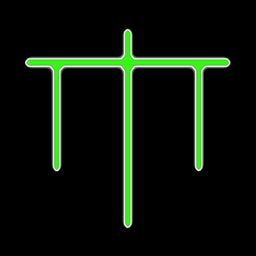As mainly a console gamer over the years, I’ve become quite used to playing with a controller that has vibration. I feel that this is one thing the Deck is missing out on.
So I’m wondering if it’s possible to somehow connect up a small vibration motor (externally) that can be connected to the Deck, and have it recognised as a controller?
Possibly more effort than it’s worth but would be interesting to see if anyone has any ideas.
The deck does have a vibration motor. Do you mean to rig up a more powerful one?
Yes that’s right. The default ones are extremely weak!
Roy, is that you…?

God damn these electric sex pants!
Yeah because they’re just using the haptics meant to provide feedback when you use the touchpads.
Even though they use the same haptic motors, they do technically have the ability to be way stronger than they actually are while rumbling. Like when you first turn the device on and it vibrates, that is definitely more intense than it ever rumbles during gameplay.
I don’t think I’ve ever even noticed it rumble during the gameplay I just assumed it was the fan speeding up lol.
It’s not a deal breaker for me it stronger haptics would be nicem
They can be stronger but then they start making audible noises. The original steam controller had stronger haptics and it sounded super loud.
You can increase the vibration intensity in the steam deck settings. Have you maxed it out?
For some reason this post reminds me of the good old N64 days where you had to load a vibration pak into the controller. Good time, good times.
Yes, that is exactly what I want xD
Why not just use something like https://crates.io/crates/buttplug ?
This may actually be the perfect solution! Internal vibration. Imagine playing Forza and feeling your insides jiggle as you accelerate through a corner. Possibly the closest thing to actually driving a car.
It sure sounds like a fun project to work on. If only I didn’t have so many things in backlog already.
*buttlog?
Usually would it be a case of game devs integrating buttplug.io support?
Yes as I understand it usually the game would call buttplug.io directly but since Steam Deck already has vibration motor that games use I think it could be possible to detect when the internal motor vibrates and then pass the same signal to buttplug.io. So kind of a bridge between the build in motor and a buttplug.
Thanks for the idea! I’ll look into this. Could be useful from a more generic perspective (i.e. just some kind of bluetooth vibration device that could attach to the Deck rather than a sex toy).
Sex toy genuinely would be great though lmao
All the sim racers use them, only a casual would drive without the SportsPlugGTX
I’ve heard they’re good for chess too
If you get your pawn to the other end you’re allowed to put the plug on the board
-
I’m in the work bathroom so I can’t check, but I think you can crank the haptic settings up on the deck, maybe that might help hold you over.
-
it might actually be easier to replace the vibration motors in the deck with those for another controller. They could be a standard size, and other motors might fit. It all depends on how the motors are controlled electrically, and whether sufficient power could be sent to the new motors, and if so whether the electrical system can handle it.
The Deck doesn’t use conventional motors for vibration like most controllers do, it uses a haptic feedback engine built into each touchpad that works more like a speaker than a traditional vibration motor (which is just a motor with a spinning weight attached). You can’t really interchange these.
Do switch joy cons do that as well? I remember some indie games literally using vibrations as a speaker
They have something similar, yes.
-
I always thought it would be a cool product idea to create a usb haptic feedback thing that attached to your desk, but no idea how you’d extract the vibration data unless you fake it based off of bass in the sound…
You could always use an external controller with haptics?
If the game has native support for controllers, maybe the USB pack could act as a controller and you “mirror” the controller input between both the pack and the deck itself?
Probably, though that might not work if you wanted to actually use a mouse + kb on the desk
Seems very doable, would just need a custom driver for the built-in controls that implements vibration.
How difficult would it be create a driver like that? Would someone with virtually no coding experience have any chance?
As a programmer that has little to no idea how to program a driver, I think it’s basically zero chance. It would take a LOT of research and learning. Define the problem, choose an appropriate language, choose and install the programming tools, learn how to program a device driver, learn about controller hardware, learn about Linux, learn the programming language, learn about Steam Deck, write code and test probably hundreds or thousands of times. If I were to wildly speculate I’d say it would be several months starting with basically zero knowledge but having time, will, and aptitude.
I think OP thought you meant a software driver but you meant a hardware driver, didn’t you?
I don’t know LOL. My experience is mostly with Windows, I assume things are different with Linux.
Ah, I would definitely struggle then! I guess my most realistic options would either be to take apart the Deck and replacing the existing motor with a stronger one, or hope that someone smarter than me has a similar idea and can code a driver
The Deck vibration isn’t an ordinary motor like most console controllers use. It’s a haptic feedback engine built into the touchpads. Basically it’s kind of like a speaker - a coil (on the touchpad surface) placed over a fixed magnet. Instead of vibrating a cone like a speaker would to make sound, it vibrates the touchpad in a very precise way to mimic clicking and other haptic effects, but the downside is that it isn’t as strong as just putting a spinning weight on a motor and making it go, which is what most controllers do.
The hardware can be as simple as a microcontroller with two motor drivers. The software would require some work though as you would have to somehow redirect the vibration commands from the game to go to your custom motor driver rather than the built-in controller (or split it to both). The other issue is providing power to your contraption.
I tried adding RGB lights to my Deck and modded in a microcontroller board with some LED strips. I found an interface to send data from the Deck to my microcontroller to control the LEDs (using some I2C pins I found) but I ended up killing a chip on my Deck’s motherboard by pulling too much power from the 5V rail on the controller PCB. Motors also consume a lot of power so finding a safe power source for this mod would run into the same issue.
If you do attempt such a mod, don’t try to draw power for the motors off of the integrated controller PCB. You run the risk of overloading the supply for it on the motherboard, and repairing that is messy.
Thanks for this info. I think a hardware mod and/or software coding for this would be beyond my understanding.
Something externally plug and play would be amazing, but I doubt such a product exists.
Making a rumble pack type accessory that clips on the back wouldn’t be too difficult from a hardware perspective, just a rumble motor and an Arduino with a type C connection would work fine, but the software involved to redirect just the rumble commands from the Deck controller to the rumble pack without also affecting the control input could be challenging. I’m not entirely familiar with how vibration is handled on Linux game controllers.
[This comment has been deleted by an automated system]
Great info! I did wonder if something like that would be possible. Will look into this, thanks
Theoretically of course :D The Software side shouldn’t be that hard either so if you get the motor somehow connected you could get fancy rumble instead of the haptic feedback which you can currently enable.
Most things are possible with enough effort but the question is if it would be worth it. You could potentially replace the weight the motor spins with one that’s heavier but then you risk burning out the motor and I’m not sure how easy it would be to replace. Adding an additional motor to the back could work. Maybe you could use an Adruino in combination with the Steam Deck’s USB C port?
I imagine without a fair amount of effort though you’d lose any kind of feeling of 3D vibration. Depending on where it’s mounted as well you might see diminishing returns.
The Deck doesn’t use a motor with a weight, it uses a vibration coil built into each touchpad that works more like a speaker. You couldn’t just replace the motor or weight.
Ah my bad











